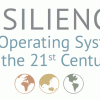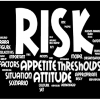Clouds of Vagueness
risk culture

What you’ve been waiting for
Matthew Leitch asked me to summarise my last two posts about risk definitions. I said it would take 5 minutes, but as I scoped it out I realised that a lot was involved to provide a proper explanation. Eventually I developed Prezi presentation with a voiceover to cover the explanations. It’s very boring so I’m […]

Pedant’s Corner (2)
This is the second post on risk definitions in the context of risk management standards. Here we are moving on to risk governance, the outer level of the three risk management processes I proposed some time ago. In that previous work I suggested there should be three main components of a risk policy, the document […]

Resilience (Part 2): aircraft carriers on the lawn
In the previous article I explored resilience in the way it is described in the WEF global risk report. It was hard to find much that distinguished it from a conventional risk management approach – listing actions against risks – apart from: a recognition that things look different at different scales – the global uncertainty […]

Resilience (Part 1)
For some time it’s been a theme in meetings between risk management people and business continuity people that the world’s ills can be solved by being resilient. Specifically, you don’t need to worry about that boring old risk profile when resilience means you can deal with anything that’s thrown at you, up to and including […]

Fragility management
I reviewed Nassim Nicholas Taleb’s book Antifragility with the promise to look separately at what the lessons might be for organisational risk management. The answer is quite a bit, and this article will just be an initial high level view. The thinking is developed pretty uncritically from the book. There will be plenty of scope […]

The profession that knows it all
The theme which underpins Clouds of Vagueness is the inherent difficulty of mastering an uncertain future and the inadequacy of our standard risk management techniques to help with this. So I was delighted to see the paper by Michael Power of the LSE in the journal Accounting, Organisations and Society, with the provocative title The risk management of […]

Complexity, cockroaches and building resilience
The near collapse of the financial system was fairly widely predicted though the political community is somewhat in denial about that. What was less widely foreseen was that it would happen in September 2008: it was a risk waiting to materialise as we risk geeks say. Two authors with a gold-plated prediction record on this, […]

Organisational risk taking – a simple view
At the core of organisational risk management lies the question of what risks to run. You know the organisation cannot achieve its purpose with certainty. You know you can take steps to control risk – to some extent. You know that your chance of success will be improved if you seek out and grasp opportunities. And you think […]

The RARA model – how relevant to organisations?
A very useful model for thinking about risk taking has been created by David Hillson and Ruth Murray-Webster. In contrast to the IRM guidance it is rigorous and well thought through. The model consists of an influence diagram in which the nodes and influences have been well-defined. Thus the model makes an interesting and valuable contribution to the risk […]

Where did the BBC go wrong?
It is a truth universally acknowledged that having some kind of ‘best practice’ (enterprise) risk management system will keep you out of trouble. Well, it is if you read the standard risk management stuff, books on reputational risk management and the like. But as the BBC’s reputation stands in tatters it’s worth asking what went wrong. Is it the […]